© Getty
On Oct. 12, 1979, a few days before he was scheduled to announce his plans to challenge Jimmy Carter in the 1980 Democratic primary, Sen. Ted Kennedy (Mass.) sat down with CBS correspondent Roger Mudd. To break the ice, Mudd opened with a softball question: “Why do you want to be president?”
"In many ways, the campaign was also jinxed. Every time it looked like things were breaking their way, another disaster happened. Most famously, on Friday, Oct. 7, 2016, 17 intelligence agencies announced their conclusion that Russia was trying to influence the outcome of the election to help Donald Trump. That news alone might have won the election for her. But, within an hour, the Russian bombshell was overshadowed both by discovery of the crude “Access Hollywood” tape and release of the first emails stolen by hackers from the account of her campaign chairman, John Podesta. Reversals of fortune happened so often that the campaign adopted the refrain: “We’re not allowed to have nice things.”
There were, in fact, several external factors that contributed significantly to Clinton’s stunning defeat, most notably: Russian interference; James Comey’s public scolding of Hillary and re-opening of the email investigation; Bernie Sanders’s surprising success; and the failure of the media to take Donald Trump seriously and subject him to scrutiny."
[Some hyperlinks added - M.N.]
The New York Times published a lengthy retrospective on Saturday about FBI Director James Comey's decision to revisit the investigation into Hillary Clinton's emails 11 days before the presidential election, offering fresh insight into Comey's thinking and sparking a new debate over whether he cost Clinton the election.
The United States will not lift sanctions on Russia until President Vladimir Putin hands Crimea back to Ukraine, Secretary of State Rex Tillerson said late Sunday.
During a phone call with Ukrainian President Petro Poroshenko, Tillerson said the sanctions—which have crippled Russia’s economy and pushed down the value of the ruble—will “ remain in place until Russia returns control of the Crimean peninsula to Ukraine.”
He also said that Moscow must honor the ceasefire in eastern Ukraine that was outlined in the Minsk agreements, according to a State Department official.
U.S. President Donald Trump’s position on whether he will lift the sanctions on Russia has been unclear since his election last year. The U.S. imposed sanctions on a wide swath of Russian businesses and wealthy individuals following Russia’s annexation of the Crimean region by force in 2014.
During the 2016 election campaign Trump said that as president he would be looking at lifting the sanctions and consider whether to recognize Crimea as a part of Russia. But in February White House press secretary Sean Spicer said Trump was expecting Putin to hand Crimea back.
Trump has also voiced admiration for Putin’s leadership and called him “very smart!" on Twitter in late December. The Russian leader drew Trump’s praise after choosing not to respond to further sanctions imposed by Barack Obama after U.S. intelligence agencies concluded that Russia influenced the 2016 presidential election.
U.S. Secretary of State Rex Tillerson has said that sanctions against Russia won't be lifted until President Vladimir Putin returns control of Crimea to Ukraine. Aaron P. Bernstein/Reuters
A back-channel plan to lift the sanctions formulated by Trump’s former national security adviser, Michael Flynn, and the president’s personal lawyer Michael D. Cohen also emerged in February. Even Tillerson has opposed sanctions, calling them imprecise and ineffective.
But the message from the State Department appeared clear Monday following the death of an American medic working with the Organization for Security and Co-operation in Europe (OSCE). The OSCE is monitoring the Minsk ceasefire and Sunday the armored patrol vehicle that the unidentified medic was driving hit a landmine in Russian-backed east Ukraine.
Related Stories
After a meeting with the EU’s foreign minister on Monday, Russian Foreign Minister Sergei Lavrov said that the starting point for any discussions will only come when both sides commit to the “full implementation of the Minsk” agreements. This ceasefire, brokered in 2014 and reaffirmed in 2015, has failed to stop the fighting in eastern Ukraine.
In February, Maria Zakharova, a spokeswoman for the Russian Foreign Ministry, said that “Crimea is territory belonging to the Russian Federation” and that "we don't give back our own territory."
After visiting Russia on April 12 and meeting Putin and Lavrov, Tillerson said relations between the two countries are at a “low point.”
“We may be at an all-time low” in relations, Trump said at a news conference the same day, adding “we’ll see what happens.”
Read the whole story
· ·
Newsweek |
US Sanctions on Russia Won't Be Lifted Until Crimea Is Returned to Ukraine: Rex Tillerson
Newsweek Trump has also voiced admiration for Putin's leadership and called him “very smart!" on Twitter in late December. The Russian leader drew Trump's praise after choosing not to respond to further sanctions imposed by Barack Obama after U.S. intelligence ... and more » |
NBCNews.com |
In Their Own Words: Experts on Donald Trump's Presidency
NBCNews.com We talked to historians, activists, authors, and White House veterans on how President Donald Trump's first 100 days measure up against his predecessors. Here are some more of their takeaways. |
CNN |
Donald Trump has one real measure of success: Ratings
CNN Washington (CNN) For the decade-plus before he decided to run for office, Donald Trump was a reality TV star. And from that experience, Trump has drawn one, clear conclusion: Ratings are the only measure of success that mean anything in this world. Donald Trump Won't Fire Sean Spicer for the Dumbest, Trumpiest Reason EverGQ Magazine Donald Trump won't fire Sean Spicer because he “gets great ratings”Salon Donald Trump won't fire Sean Spicer because he 'gets great ratings'The Independent Yahoo News all 106 news articles » |
Patch.com |
Rudy Giuliani Coming To Cranberry For St. Barnabas Event - Patch
Patch.com Cranberry, PA - Former New York City mayor will receive the St. Barnabas Health System's prestigious Hance Award. Rudy Giuliani to receive St. Barnabas Hance Award - Butler EagleButler Eagle (subscription) all 2 news articles » |
Vanity Fair |
Donald Trump Just Took a Weird Shot at Nikki Haley
Vanity Fair Amid the flurry of meetings Donald Trump has scheduled this week as his administration scrambles to bolster his presidential report card and control the narrative ahead of his 100th day in office, the president took a peculiar swipe at Nikki Haley, his ... and more » |
Next Page of Stories
Loading...
Page 2
Full transcript: FBI Director James Comey testifies on Russian ...
Washington Post-Mar 20, 2017
Russian intelligence has been simile interfering in the internal and political ... Many of the Trump's campaign personnel, including the president ...
Sources: Russia tried to use Trump advisers to infiltrate campaign
CNN-Apr 21, 2017
Washington (CNN) The FBI gathered intelligence last summer that suggests Russian operatives tried to use Trump advisers, including Carter ...
CNN: Russia tried to infiltrate Trump campaign through Carter Page
<a href="http://TheBlaze.com" rel="nofollow">TheBlaze.com</a>-Apr 21, 2017
<a href="http://TheBlaze.com" rel="nofollow">TheBlaze.com</a>-Apr 21, 2017
Read the whole story
· ·
Newsday |
Rudy Giuliani's client dealt with ex-Iran president, prosecutor says
Newsday Former mayor Rudy Giuliani's efforts to free the wealthy Turkish gold trader Reza Zarrab have raised questions of conflict of interest and possible use of Trump administration ties to circumvent the courts for a well-connected defendant. Giuliani is ... Rudy Giuliani Called Iran Insane. Now Hes Trying to Free an Alleged Sanctions CrookDaily Beast Giuliani's Talk With Erdogan Adds Mystery to U.S. Sanctions CaseBloomberg Case of Turkish businessman turns politicalamNY Courthouse News Service -WCBI -Al-Arabiya all 12 news articles » |
University of Delaware Review |
The bromance is dead: The evolving relationship between Trump and Putin
University of Delaware Review U.S.-Russia Relations During the Trump Administration,” explored the history of the relationship between the U.S. and Russia with a specific focus on the evolving alliance between Putin andTrump. “I was asked to talk about U.S. international relations ... |
TIME |
Chinese President Xi Jinping Urges Donald Trump to 'Avoid Aggravating' North Korea
TIME (WASHINGTON) — As the world braces for a possible North Korean nuclear test, Chinese President Xi Jinping on Monday urged restraint in a call to President Donald Trump. American's U.N. envoy warned of a strike if Pyongyang attacks a U.S. military base ... Donald Trump attacks UN officials over North Korea and Syria 'failures' as they sit beside himThe Independent US President Donald Trump Calls For New UN Sanctions Against North KoreaNDTV President Trump to host unusual meeting with UN Security CouncilCNBC The Guardian -NEWS.com.au all 2,755 news articles » |
The New Yorker |
Roger Stone and the Trump-Nixon Connection
The New Yorker “I believe in winning,” Roger Stone, the notorious political provocateur, says near the beginning of the fascinating new Netflix documentary about his life. The film, called “Get Me Roger Stone,” takes us from his days as a teen-age dirty trickster in ... 10 Things You Didn't Know About Roger StoneU.S. News & World Report Director: Trump told Roger Stone not to cooperate with the Netflix documentary about himBusiness Insider New Roger Stone Documentary Reveals Trump's Man - NBC NewsNBCNews.com Daily Beast -IndieWire -EW.com all 14 news articles » |
Mediaite |
Wall Funding Highlights Additional Divisions Between Donald Trump and Steve Bannon
Mediaite Donald Trump and his chief strategist Steve Bannon appeared on the road to another schism, this time over the issue of funding for the border wall. The proposed wall along the southern border with Mexico was one of Trump's signature campaign promises. Donald Trump has a terrible idea for preventing a US government shutdownQuartz Donald Trump can't stop talking (and talking) about the 2016 electionCNN Donald Trump Scrambles to Save His PresidencyVanity Fair TIME -Politico -Slate Magazine all 1,310 news articles » |
Next Page of Stories
Loading...
Page 3
U.S. News & World Report |
10 Things You Didn't Know About Roger Stone
U.S. News & World Report 10 Things You Didn't Know About Roger Stone. Roger Stone talks to reporters outside a courtroom in New York, Thursday, March 30, 2017. (Seth Wenig/AP). 1. Roger Jason Stone Jr. was born on Aug. 27, 1952, in Norwalk, Connecticut. He was born to Roger ... Roger Stone and the Trump-Nixon ConnectionThe New Yorker Director: Trump told Roger Stone not to cooperate with the Netflix documentary about himBusiness Insider New Roger Stone Documentary Reveals Trump's Man - NBC NewsNBCNews.com Daily Beast -Hollywood Reporter -IndieWire all 14 news articles » |
-

toggle caption
Chelsea Beck/NPR

toggle caption
Molly Riley/Pool/Bloomberg via Getty Images
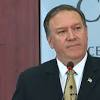


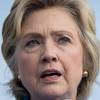

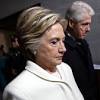



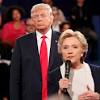
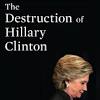




 FBI Director Comey. Thomson Reuters
FBI Director Comey. Thomson Reuters
-
It may be news to Donald Trump that the original One Hundred Days ended with Napoleon’s defeat at Waterloo. In fact, if Trump learned about Napoleon from “Fox & Friends,” he would probably snarl, “I like my conquerors of Europe not to end up exiled to an island so remote you can’t even build a world-class hotel on it.”
The news media may be reeling in an era of fake news, but nothing halts the journalistic passion for predictable rituals like toting up presidential accomplishments after 14 weeks and 2 days in office. Trump himself would admit that he is no Franklin Roosevelt. After all, the 45th president would have spurned marrying a woman like Eleanor Roosevelt — who was never mistaken for an international fashion model when she was touring coal mines on behalf of FDR.
One hundred days remains an unfair standard to assess any president’s accomplishments, especially since using that benchmark tends to reward easy victories and symbolic gestures. A far more fruitful approach would be to assess what we have learned about the new president, the Congress and the nation during the 100 days since Inauguration Day.
Here, then, is an impressionistic early scorecard on the Chaos Theory Presidency:
Trump is no autocrat-in-chief
The opening months of the Trump administration have offered a crash course in the limitations of presidential power. The courts blocked two executive orders banning immigration from seven overwhelmingly Muslim countries. The national security establishment rebelled against the ethically challenged Michael Flynn, Trump’s short-lived NSC adviser. And the House balked at passing Trumpcare.
Wild improvisation is not a legislative strategy
Unlike Barack Obama, Trump has been willing to deploy the traditional tools of presidential persuasion like phone calls and dinners. The problem instead rests with the president’s impatience, disdain for substance and complete lack of understanding of the folkways of Capitol Hill.
This week offers a prime example. Trump, whose party controls both houses of Congress, has been nurturing the fantasy that only the Democrats will be blamed if there is a government shutdown over his insistence on funding his unpopular border wall. At the same time, offering some vague campaign-style promises about an unfunded tax cut is a far cry from passing complex legislation.
Trump’s contempt for ethical norms may have lasting consequences
While no future president is likely to have his name emblazoned on a hotel within easy walking distance of the White House, it is easy to imagine Trump’s successors balking at releasing their taxes or fully divesting their business dealings. Ivanka Trump and her husband Jarred Kushner appear to believe that working in the White House is just another branding opportunity.
The alternative facts White House
Nothing is more fatiguing than trying to keep up with the lies uttered by the president and aides like Sean Spicer who dance for Trump’s approval. The danger is — whatever the ultimate verdict on the Trump presidency — we will have permanently poisoned fact-based political discussion.
Congress cannot mount a credible non-political investigation of a president
Want insight more often?
Get Roll Call in your inbox
The Watergate model of a bipartisan group of senators working to ferret out the truth about a corrupt president now seems a weird 20th century artifact. The new congressional motto has become, “If the president is from my party, I have no curiosity about what is going on behind closed doors in the Executive Branch.”
Congressional dithering goes well beyond the two sputtering Russia probes. There is a disturbing lack of interest on Capitol Hill about the legal justification for Trump’s impulsive cruise-missile attack on Syria. And it seems almost impolite for any Republican to question the unseemly buckraking by the Trump family.
Democrats may be heading for a nostalgic journey back to the 1980s
That was the decade when the Democrats lost three landslide elections in a row. At a time when the out-of-power party should be uniting to battle a polarizing president with an approval rating of just above 40 percent, the Democrats instead are returning to their fractious ways.
Nancy Pelosi and Chuck Schumer have adroitly held congressional Democrats together on issues ranging from health care to Neil Gorsuch. But away from Capitol Hill, the party keeps reenacting the Hillary Clinton versus Bernie Sanders battles from the 2016 primaries.
One day it was Sanders sniffing that Jon Ossoff, who almost won Tom Price’s seat in Georgia’s 6th District without a runoff, isn’t a progressive. Then Sanders and new DNC Chair Tom Perez, in the midst of the Unity Tour, touched off a furor with NARAL and women’s groups by endorsing an anti-abortion mayoral candidate in Omaha.
Pretty soon, the derogatory phrase DINO’s (Democrats in Name Only) may enter the political lexicon as the party decides that ideological purity is more vital than electoral majorities.
Republicans risk long-term damage from their uncritical embrace of Trump
While it is folly to predict the political climate on Election Day 2018, the early readings from polls, special elections and history suggest that GOP House members in competitive districts should not be buying real estate in Washington.
As the GOP braces for a bumpy ride in 2018, it remains baffling why so few Republicans have distanced themselves from Trump. The Republican silence on Trump-era ethics, governmental chaos and bizarro tweets suggest that many in Congress are placing party loyalty over personal survival. It is worth asking: What has Trump done to earn such trust?
The good news
The nation endures without new terrorist attacks or economic crises. And maybe we can weather the next four years, despite that intemperate man in the White House.
Get breaking news alerts and more from Roll Call on your iPhone or your Android.
Read the whole story
· · · ·
President Trump built up his ability to "Making America Great Again." But these first 100 days of his presidency haven't exactly made clear how he intends to do that. Chelsea Beck/NPR hide caption
President Trump built up his ability to "Making America Great Again." But these first 100 days of his presidency haven't exactly made clear how he intends to do that.
Chelsea Beck/NPR
Donald Trump promised something new in American politics.
His strategists said his brash "America First" approach would bust up the old party identities and remake the Republican Party as a true populist "Workers Party."
But it was never perfectly clear exactly how he planned to do that — 100 days into his administration, here are five thoughts on what we know so far about Trumpism:
1. The early debate about Trumpism (and what that means)
Trump was so new and different, there was tremendous interest on the part of historians, conservative intellectuals and political operatives from both parties in figuring out just what "Trumpism" was — or if it existed at all. Is there a consistent doctrine or an ideology that drives him?
During the campaign, there were two main theories about that — on the one hand, Trumpism was economic populism combined with social conservatism and a dash of isolationism — kind of an updated version of Republican Party ideology from the 1920s.
The second theory was that trying to define a coherent ideology that could be called Trumpism was a fool's errand. According to this theory, Trump really did not believe in anything, except endless confidence in himself. He would just show up, make decisions based on his own impulses and instincts and see what happened.
A hundred days into his presidency, and it's fair to say we really don't know which of those two interpretations is actually his approach to governance.
2. Trumpism is a moving target
On foreign policy, Trump is morphing into a more conventional Republican. His policy choices on China, NATO, Iran, the European Union and Syria have earned him praise from the bipartisan foreign-policy establishment he used to call "stupid."
On domestic policy, Trump is also moving away from his populist campaign rhetoric. He stocked his Cabinet with billionaires and CEOs. He's been tilting toward the Wall Street Wing of his White House staff and signing executive orders helpful to the big banks. He embraced an Obamacare replacement plan that was anything but populist — it would have raised the cost of health insurance for older, low-income voters (his base), and it would have cut entitlements — something Candidate Trump promised never to do.
President Trump has left many scratching their heads on what kind of president he will be. His first 100 days as president offered conflicting messages. Molly Riley/Pool/Bloomberg via Getty Images hide caption
President Trump has left many scratching their heads on what kind of president he will be. His first 100 days as president offered conflicting messages.
Molly Riley/Pool/Bloomberg via Getty Images
3. There is no Trumpist Caucus in Congress
One of the problems President Trump has had turning his nationalist, populist, anti-establishment instincts into a coherent governing agenda is that there aren't a lot of Trumpists in Congress. Trumpism was more an attitude than a movement.
Even the House Freedom Caucus, which was swept into office by the same anti-establishment forces that helped elect Trump broke with him on the Obamacare bill.
Trump's coattails didn't stretch very far in 2016. His party lost seats in the House and Senate (though not as badly as predicted). Compare that to Ronald Reagan in 1980, who brought 33 new Republicans into the House and 12 new Republicans into the Senate.
4. Trumpism was always more of an attitude than a clearly defined movement
Two issues matter most to Trump voters.
There may not be a base of Trumpist congressmen on Capitol Hill, but Trump does have a base. Those white, working-class voters may not care if Trump abandons his populist promises on the Export-Import Bank or Chinese currency manipulation, but they are paying careful attention to what Trump does on trade and immigration.
Those two issues were the way he connected with the white, working-class voters who fueled his rise. Even as he moderates elsewhere, on both trade and immigration, he's still moving forward very aggressively (in parts — he didn't tear up NAFTA) and very confrontationally, staying focused on the same economic and cultural anxieties he stoked during the campaign.
Already, Trump's message on immigration is being heard loud and clear. Without passing any laws, illegal border crossings have slowed, H1B1 visa applications are down, as are applications from foreign students to American universities. Even tourism to the U.S. is off.
5. What are the next tells for Trumpism?
Other issues will soon be putting Trumpism to the test. Next up (maybe) is a tax overhaul. On Wednesday, the president has vowed to announce his plan for massive tax cuts.
Every tax bill has winners and losers. And Trump's tax bill will tell us a lot about what Trumpism is. If at end of the day, the Wal-Mart shoppers feel like they've been screwed and that the Goldman Sachs people get more benefits out of the tax overhaul, Trump could lose support from his base.
So far, Trump's base has stayed loyal to him. That's good news for Trump. Polls show that his base voters are satisfied with his performance. The bad news is that he hasn't expanded his base at all — his approval ratings are at historic lows for a new president, and Trumpism remains a mystery.
Is Trumpism just a nativist version of what a Mitt Romney administration would look like?
Or is it up for grabs, waiting for the next impulsive decision of a president who prides himself on being transactional, flexible and unpredictable.
Read the whole story
· · · · · · · · · · · ·
Next Page of Stories
Loading...
Page 4
National Security Adviser Michael Flynn | Win McNamee/Getty Images
The former national security adviser’s client had business dealings in Russia and worked with an executive in Russian oil companies on Turkish lobbying projects.
The Turkish man who gave Mike Flynn a $600,000 lobbying deal just before President Donald Trump picked him to be national security adviser has business ties to Russia, including a 2009 aviation financing deal negotiated with Vladimir Putin, according to court records.
The man, Ekim Alptekin, has in recent years helped to coordinate Turkish lobbying in Washington with Dmitri “David” Zaikin, a Soviet-born former executive in Russian energy and mining companies who also has had dealings with Putin’s government, according to three people with direct knowledge of the activities.
This unusual arrangement, in which Alptekin and Zaikin have helped steer Turkish lobbying through various groups since at least 2015, raises questions about both the agenda of the two men and the source of the funds used to pay the lobbyists.
Although Turkey is a NATO ally, its president, Recep Tayyip Erdogan, has grown increasingly authoritarian and friendly with Putin. And the hiring of Flynn by Alptekin came at a time when Flynn was working for Trump’s campaign and Putin’s government was under investigation for interfering with the U.S. election.
Flynn’s lawyer, Robert Kelner, declined to comment. In a filing with the Justice Department, Flynn said he relied on assurances from Alptekin that he was not directly or indirectly funded by a foreign government. But shifting explanations and a web of business ties raise questions about the arrangement.
Flynn has offered evolving accounts of his lobbying work for Alptekin. In September, Flynn reported his client as a Dutch shell company owned by Alptekin. After being forced to leave the White House — reportedly because he lied to Vice President Mike Pence about his conversations during the transition with the Russian ambassador — Flynn filed new paperwork in March acknowledging that his lobbying work “principally benefitted” the Turkish government.
The revelation of Russian business ties to the man who hired Flynn — which has not been previously reported — threatens to complicate the White House’s struggle to escape the shadow of the FBI investigation into whether members of the Trump campaign coordinated with Russian agents.
Flynn has been a focus for concerns about Russian ties to both the Trump campaign, for which he was a key adviser and surrogate, and the Trump administration, in which, as national security adviser, he had access to the most sensitive state secrets.
He also has a history of failing to disclose ties to Russia. His original White House ethics disclosure failed to include payments from Kremlin propaganda network RT and two other Russian companies. The RT payment was for a paid speech Flynn gave at a Moscow gala where he sat at the same table as Putin.
A White House spokesman declined to comment.
Zaikin declined to be interviewed but said in an email that he wasn’t involved in Flynn’s lobbying and doesn’t know Alptekin.
Alptekin, in an interview, said he hired Flynn with his own money and did not coordinate any lobbying for the Turkish government. He also denied knowing Zaikin.
But Alptekin acknowledged that he has attended events and met with leaders of the Turkish Heritage Organization, a Washington-based group of Turkish-Americans loyal to Erdogan. The organization was started when Zaikin asked a Washington-based international political consultant named John Moreira to help set it up, Moreira told POLITICO.
Asked why Zaikin — who is not Turkish and has no apparent ties to Turkey — would be organizing a Turkish heritage organization, Moreira said he thought Zaikin had Turkish friends and business associates.
“I don’t know who David was working for. He just asked me to do this,” Moreira said.
Moreira said he was paid to help manage the heritage organization but would not say by whom.
Moreira said he gave Zaikin weekly updates on the organization’s activities and that Zaikin visited Washington about every other month. On at least one occasion, Alptekin, who was born in Turkey and grew up in the Netherlands, met with communications consultants working for the Turkish Heritage Organization, he said.
But three people with direct knowledge of the situation said it was more than just one meeting; Zaikin and Alptekin worked together to help coordinate pro-Turkish lobbying.
For his part, Zaikin said, “I introduced [the Turkish Heritage Organization] to a few companies who I believed were industry professionals in good standing. I was present at a few meetings.”
Zaikin, 49, was born in Ukraine and grew up as a citizen of the Soviet Union. He said in emails that doctors excused him from the Soviet military draft because of an injury, and that his family left the Soviet Union in 1990. He subsequently became a Canadian citizen and now lives in London.
In the 2000s, Zaikin was an executive in Russia’s oil industry at a time when Putin was consolidating control over the country’s mineral wealth to the financial benefit of himself and the circle of oligarchs who are his key supporters and associates.
As chairman and CEO of a company called Siberian Energy Group, Zaikin obtained mineral interests and exploration licenses in Russia’s Kurgan province, according to filings with the Securities and Exchange Commission.
Siberian Energy Group’s dealings under Zaikin were characteristic of the equity trades, offshore financing schemes and consulting agreements that Putin’s allies have used to protect and hide assets.
In 2008, Zaikin made a deal with an ex-KGB oligarch involved in the giant state oil company Gazprom. Zaikin’s company sold the oligarch a 2.5 percent stake in a subsidiary, known as KNG, for shares worth $10, equivalent to valuing the entire subsidiary at $400, according to SEC disclosures. That came less than two years after Zaikin’s company bought KNG for the equivalent of $2.7 million.
The same month as the deal with the oligarch, Zaikin’s company issued shares to a limited liability company in Moscow called Business Standard. In 2007, Zaikin’s company agreed to pay the firm thousands more shares in exchange for what the contract called “certain consulting services,” including help in obtaining oil and gas drilling licenses from the Russian government.
Zaikin was also a director of a subsidiary called Zauralneftegaz that explored for oil and gas in West Siberia. The company was in part controlled by shell companies set up by a London law firm involved in the Panama Papers, the massive leak of records from an offshore finance law firm that showed how Putin associates secretly moved around $2 billion in assets.
Alptekin has had his own business dealings in Russia.
As a partner in an investment group called ETIRC as early as 2006, Alptekin bought a stake in a New Mexico jet manufacturer called Eclipse Aviation. In September 2008, Eclipse announced plans to build a $205 million factory in Russia financed by Russian state bank Vnesheconombank, whose board was chaired by Putin, then prime minister. A photo in the trade press showed Putin personally inspecting one of Eclipse’s jets.
But a month later, Eclipse filed for bankruptcy protection. Alptekin and his partners planned to buy out the company with financing from the Putin-chaired bank. Putin was personally involved in approving a loan from the bank to Eclipse, according to court records.
“The Eclipse project is one of the top priority to be funded and has been approved by Prime Minister Putin,” the minutes of an Eclipse board meeting Feb. 16, 2009, said, referring to ETIRC’s planned purchase of Eclipse.
But the funding apparently never materialized, and the sale didn’t go through. Instead, Alptekin and partners bought the old company’s assets for $40 million and formed a company called Eclipse Aerospace. When the company sought bankruptcy protection, it had declared assets valued at almost $1.1 billion.
“I think it was a good deal,” Alptekin said in his interview with POLITICO.
Alptekin acknowledged ETIRC’s negotiations with the bank chaired by Putin, but said he never interacted with any Russian officials. There are no Russians involved in the new company, he said.
Today, that company, known as EA Group, markets Eclipse jets in Turkey, Russia and the Middle East, according to its website. But Alptekin, in his POLITICO interview, said he lost the license to market the jets in Russia because he failed to sell any.
The company also has an arms-dealing division, focusing on Turkey and the Middle East. Alptekin said he sold video surveillance equipment for Turkish police helicopters and declined to discuss his other deals. He said the arms division isn’t active currently.
In his Justice Department filings, Flynn said the lobbying work he did for Alptekin focused on pressuring the U.S. to hand over Fethullah Gulen, a Turkish cleric living in Pennsylvania whom Erdogan claims is trying to overthrow him.
The lobbying work that Alptekin and Zaikin helped organize on behalf of Turkish groups also focused on Gulen.
Zaikin did not sign checks or contracts — the K Street firms were hired through the Turkish Heritage Organization and another nonprofit called the Turkish Institute for Progress, according to lobbying disclosure records. Zaikin also asked Moreira to help set up the Turkish Institute for Progress, Moreira said.
But the firms sometimes sent invoices to one of Zaikin’s companies, Key Elements Group in London, according to people with direct knowledge of the dealings. Zaikin dissolved the company in December, according to British corporate records.
The Turkish Institute for Progress’s president until December, a Turkish woman in New Jersey named Derya Taskin, initially denied knowing Zaikin. Later, she acknowledged hiring Moreira and knowing a “David” who worked with him.
Taskin declined to disclose the group’s donors. She said her organization’s nonprofit status was still pending approval so she could not provide an annual IRS filing.
Asked how she connected with the lobbying firms her group hired, Taskin said, “We just Googled them.” Later, she acknowledged that Moreira recommended the firms.
The Turkish Heritage Organization says it operates independently of the Turkish government and of the Turkish Institute for Progress. But emails hacked from Erdogan’s son-in-law Berat Albayrak and published by WikiLeaks in December appear to show that the organization’s leaders reported to Albayrak and other Turkish officials about their lobbying activities in Washington. The emails, which were stolen by a Turkish Marxist group called RedHack, also appear to show Zaikin receiving reports of those lobbying activities.
In February 2015, Turkish Heritage Organization member Ali Cinar alerted Zaikin and the group’s other leaders to a congressional letter critical of Erdogan, according to one of the emails. The heritage organization’s president at the time, Halil Danismaz, forwarded the email to Albayrak, Erdogan’s son-in-law, and Erdogan’s son Bilal.
Danismaz, who left the group and the U.S. last year, denied reporting to Albayrak and said Zaikin introduced the heritage organization to “companies who can help us on PR and similar issues.”
“I have been a victim of massive defamation campaign sponsored by sophisticated GULEN owned infrastructure,” he said in an email to POLITICO.
Cinar, now the Turkish Heritage Organization’s president, confirmed the emails’ authenticity but said he wasn’t aware of Zaikin’s Russian ties or Danismaz’s apparent contacts with Turkish officials. He said Zaikin was a consultant to Danismaz.
“We don’t do lobbying for the Turkish government,” he said.
In another email from the same hack, Moreira, the American consultant who was working with Zaikin, updated Zaikin, Cinar and longtime Turkey lobbyist Lydia Borland about a congressional resolution commemorating the 100th anniversary of the Armenian Genocide. Danismaz told Erdogan’s son and son-in-law that the heritage organization would soon publicize its own resolution that their lobbyists were promoting to members of Congress. Moreira’s message included the original email signature from one of the lobbying firms working for the Turkish Institute for Progress.
Albayrak, Erdogan’s son-in-law, was one of the Turkish officials who Alptekin arranged for Flynn to meet in New York in September, according to Flynn’s disclosures. They discussed kidnapping Gulen to remove him to Turkey, according to a person who was briefed on the meeting.
CIA director Mike Pompeo repeatedly cited WikiLeaks to attack ...
CNN-18 hours ago
But no Trump administration official went further in condemning the group than CIA Director Mike Pompeo, who, in a speech two weeks ago, ...
Trump, the Department of Justice (DOJ) and Julian Assange
Center for Research on Globalization-Apr 24, 2017
Center for Research on Globalization-Apr 24, 2017
Read the whole story
· · ·
'The Daily': James Comey and the 2016 Election
New York Times-Apr 24, 2017
James B. Comey, director of the F.B.I., had an influence on the 2016 presidential race by deciding at important moments how much the public ...
France, James Comey, Uber: Your Monday Briefing
New York Times-Apr 24, 2017
James Comey, the bureau's director, has largely tried to keep out of politics. But during investigations of both the Hillary Clinton and Donald ...
James Comey Wrap-up: Benghazi and the Press Were to Blame Too
Mother Jones-20 hours ago
For example: James Comey. On Saturday, in a very long post, I made the case that Comey was the decisive factor in Hillary Clinton's loss, not ...
FBI director James Comey lands in Queenstown ahead of top-secret ...
International-Stuff.co.nz-Apr 22, 2017
International-Stuff.co.nz-Apr 22, 2017
John McCain lauds FBI Director James Comey: 'His independence ...
Washington Examiner-Apr 20, 2017
John McCain, R-Ariz., is praising FBI Director James Comey for his "independence" while investigating politicians on both sides of the political ...
Read the whole story
· ·
Press: Hillary's doomed bid
The Hill-15 hours ago
After interviewing scores of Clinton campaign insiders, Parnes and Allen conclude: “Hillary didn't have a vision to articulate. ... of the first emails stolen by hackers from the account of her campaign chairman, John Podesta. ... Comey's public scolding of Hillary and re-opening of the email investigation; ...
'Shattered' Picks Through The Broken Pieces Of Hillary Clinton's ...
NPR-Apr 18, 2017
Ever since election night last November, millions in America and around the world have wondered what happened to Hillary Clinton, who was ...
Here's a list of everyone Hillary Clinton blamed this week for 2016 ...
Washington Examiner-Apr 7, 2017
Hillary Clinton emerged from the woods this week for her first big ... in the election by reportedly hacking the personal email accounts of Democratic National Committee staffers and her campaign chairman, John Podesta. She blamed the hacking group WikiLeaks for publishing the stolen emails during the ...
Trying to avoid politics, FBI Director James B. Comey shaped election
The Seattle Times-Apr 22, 2017
But in the final months of the presidential campaign, the leader of the nation's pre-eminent ... had become, the document had been stolen by Russian hackers. .... The FBI investigation into Clinton's email server was the biggest political ..... email account of John D. Podesta, chairman of the Clinton campaign.
Read the whole story
· ·
New York Times sheds new light on its own controversial Clinton ...
Washington Post (blog)-17 hours ago
The revisions didn't satisfy the Clinton campaign. ... at the FBI and they saw this weird parsing as giving cover to Hillary Clinton. ... That it was, in fact, a criminal investigation became clear to the entire world in July 2016, when FBI ... When asked if he felt vindicated by the timeline, Apuzzo resisted yes.
Review: "The Destruction of Hillary Clinton"
The Missourian (blog)-21 hours ago
Review: "The Destruction of Hillary Clinton" ... countless people have been asking: “Why did Hillary Clinton lose the 2016 Presidential Election? ... Bernie Sanders, distorted press coverage and, primarily, lack of appeal to millennials. ... Susan Bordo is a media critic, cultural historian and feminist scholar.
EXCLUSIVE – Clinton Sex Accusers Slam 'Hypocritical' Media over ...
Breitbart News-2 hours ago
Speaking to Breitbart News, the victims of Bill Clinton's alleged sexual ... continue to overlook Bill and Hillary's ongoing lies and cover-ups. ... meanwhile, was typified during the 2016 presidential election by NBC ... news media's coverage of Clinton sex accusers during Bill Clinton's ... The timeline is critical.
A Beginner's Guide to the Trump/Russia Controversy
National Review-Mar 31, 2017
... that they ultimately sought to help Donald Trump beat Hillary Clinton. ... More than 130 million Americans voted in the 2016 election, but the ... claim that Clinton received worse or less favorable media coverage than her opponent. ... timeline lit up with lefties who still think Trump will be impeached?
An exhaustive timeline of the Trump-Russia connections — starting ...
Raw Story-Apr 11, 2017
... business dealings and news coverage inside the United States, Europe, and ... Ten years later — October 2016 — Trump Organization general counsel ..... stolen emails from the account of Hillary Clinton campaign chairman John .... and in exclusives to media outlets and relayed material to WikiLeaks.
Read the whole story
· · ·
Next Page of Stories
Loading...
Page 5
© Getty
On Oct. 12, 1979, a few days before he was scheduled to announce his plans to challenge Jimmy Carter in the 1980 Democratic primary, Sen. Ted Kennedy (Mass.) sat down with CBS correspondent Roger Mudd. To break the ice, Mudd opened with a softball question: “Why do you want to be president?”
The New York Times published a lengthy retrospective on Saturday about FBI Director James Comey's decision to revisit the investigation into Hillary Clinton's emails 11 days before the presidential election, offering fresh insight into Comey's thinking and sparking a new debate over whether he cost Clinton the election.
Nate Silver, the editor in chief of FiveThirtyEight, said The Times' report showed "the case that the Comey letter — or the media's handling of the letter — cost Clinton the election is painfully obvious."
On October 28, Comey wrote a letter to Congress saying that the FBI had learned of "the existence of emails that appear to be pertinent" to the investigation into Clinton's email server, which had originally been closed in July. The emails were discovered as the FBI was examining former Rep. Anthony Weiner's laptop, which he shared with his wife, Huma Abedin, a top Clinton aide.(Weiner had been accused of exchanging sexually explicit texts with a 15-year-old girl.)
The letter was promptly released by Utah Rep. Jason Chaffetz, the chair of the House Oversight Committee, and dominated the headlines of major media outlets in the days leading up to the election. Stocks fell sharply and Clinton's poll numbers dropped by 3 points over subsequent days, Silver pointed out — a last-minute slip political scientists attributed to "the Comey effect,"according to The Times.
Then, on Election Day, Clinton lost Florida, Wisconsin, Pennsylvania, and Michigan — each by less than 1 percentage point.
"Not complicated," Silver said. "Clinton was up by a lot. Comey letter hits. Treated as massive story. Suddenly she was up by not-a-lot. She loses narrowly."
Silver received pushback for concluding that Comey's letter — reportedly the result of weeks of deliberation over how the FBI should proceed after it uncovered the new emails in early October — was so consequential.
Many say Clinton's loss was her own fault and she has been using the Comey letter as a scapegoat. (Her campaign has publicly blamed Comey for the loss.) Journalist Ron Fournier, for example, shot back at Silver's argument with a link to a piece he wrote in July 2016 titled "Hillary Has No One to Blame But Herself."
"When I wrote this column, you were still predicting a Clinton win," Fournier told Silver. "Nice work."
The back-and-forth quickly descended into a feud over "how probability works," as Silver put it. But few doubt that Comey's revelation had a negative effect on Clinton's candidacy, even if it was not enough to swing the election at the last minute.
Whereas many Clinton backers felt vindicated by Comey's revelation last month that the FBI had been investigating Trump and his associates for their ties to Russia since last July, others were outraged that Comey broke FBI protocol to disclose the existence of new Clinton emails just days before the election, but didn't tell voters that Trump was also under FBI investigation until four months after the election.
People familiar with Comey's thinking told the Times that he wanted to shield the FBI from what he perceived to be then-Attorney General Loretta Lynch's bias toward Clinton, which prompted him to handle the Clinton and Trump investigations "in starkly different ways."
But the different approaches didn't go unnoticed. Democratic Rep. Jerrold Nadler confronted Comey about the appearance of a double standard during a congressional hearing, after then-Senate Minority Leader Harry Reid, who had been briefed on aspects of the Trump-Russia probe by CIA Director John Brennan, wrote a letter to Comey imploring him to go public.
“After you investigated Secretary Clinton, you made a decision to explain publicly who you interviewed and why,” Nadler said to Comey. “You also disclosed documents, including those from those interviews. Why shouldn’t the American people have the same level of information about your investigation with those associated with Mr. Trump?”
According to The Times, "Mr. Comey never considered disclosing the case. Doing so, he believed, would have undermined an active investigation and cast public suspicion on people the FBI could not be sure were implicated."
Read the whole story
· · · ·
